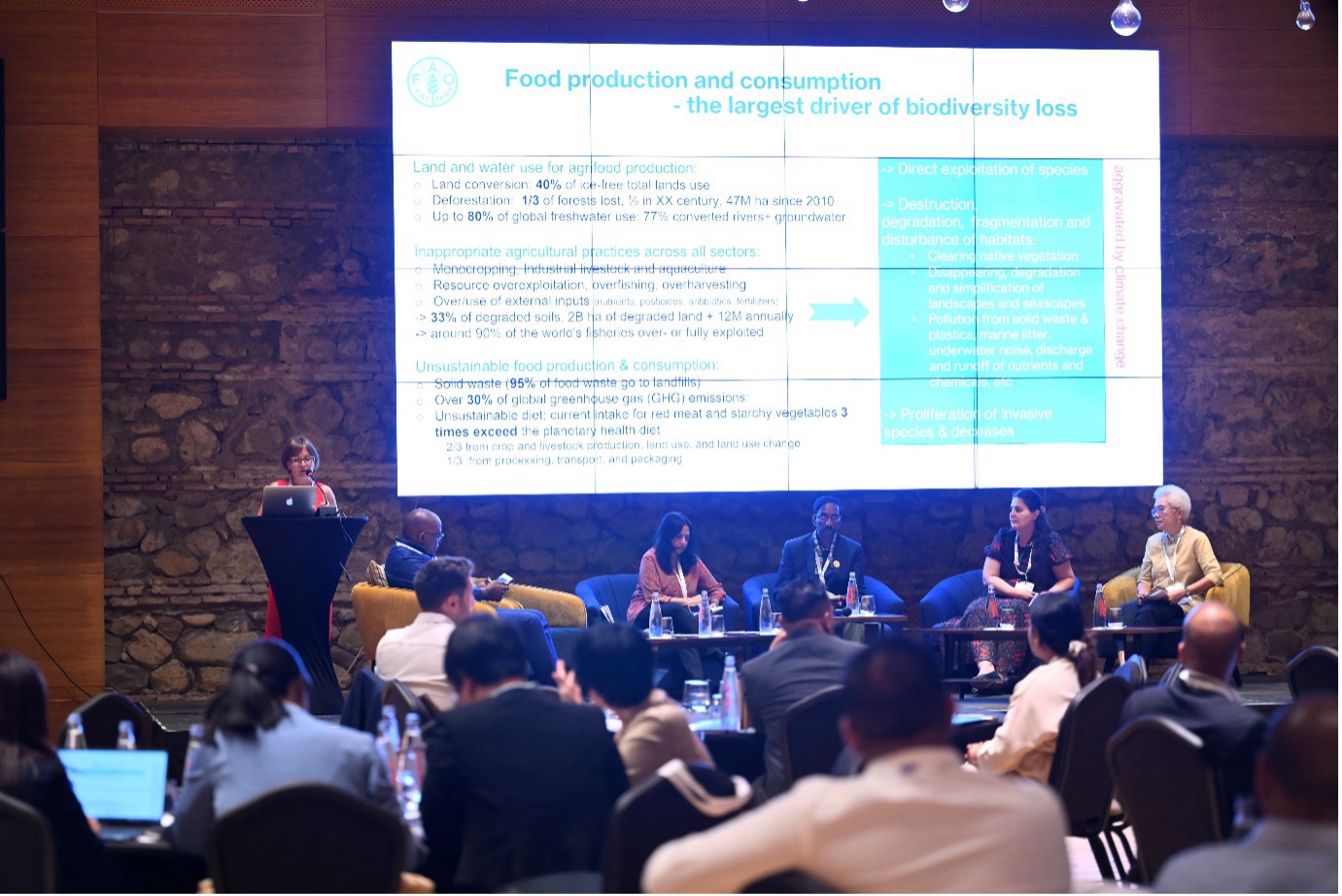Enhancing Biodiversity through Sustainable Finance: Insights from Regional Dialogue in Georgia

©UNDP–BIOFIN
Hosted by the United Nations Development Programme (UNDP) and BIOFIN, this landmark event brought together over 60 experts and government representatives from Europe, Asia and the Pacific. The dialogue aimed at exploring and refining strategies, mechanisms and methodologies for integrating biodiversity into national financial planning and agricultural practices.
“Georgia is one of the first 30 countries to initiate a national biodiversity financing process in 2016,” said Solomon Pavliashvili, Deputy Minister of Environmental Protection and Agriculture of Georgia. “The country has made significant strides in securing resources for biodiversity conservation and developing and implementing effective policies. Increasing budget allocations for biodiversity conservation is a moral imperative and the wisest investment in our shared future.”

Anna Kanshieva, FAO REU, presents the work on biodiversity and sustainability of agrifood systems
Credits: UNDP–BIOFIN
One pivotal session focused on the role of sustainable agricultural practices in enhancing biodiversity. During this session, Anna Kanshieva, a Biodiversity, Science and Innovation Specialist at the FAO Regional Office for Europe and Central Asia, presented a keynote address about the opportunities to enhance biodiversity and increase agrifood system sustainability. Kanshieva highlighted the impacts of agrifood systems on biodiversity, including the nexus with climate change, the status of biodiversity for food and agriculture, and the biodiversity-friendly practices across agrifood sectors.
Various levers and country cases related to policy, economic and financial instruments from Georgia, India and the Philippines were discussed, offering diverse perspectives on financing reforms in the agrifood sector and implementing effective national biodiversity actions.
Key takeaways:
- Awareness: Recognizing the influence and dependence of the agrifood sector on biodiversity is key to promoting financial solutions and reforming agrifood system state support. It is crucial to collect best practices on National Biodiversity Strategies and Action Plans and provide consumer education in support of sensitive reforms.
- Synergies: Continued dialogue among line ministries (with a lead responsible and indicator setting) and capacitating a whole-government approach can help harness synergies.
- Nature-positive incentives: Focused on nature-positive incentives, the workgroup drafted a regional map of subsidies, indicating their impact on biodiversity. Participants also explored other regional and national financial solutions, exchanged lessons learned and brainstormed how to adapt language and communication strategies to better engage multiple stakeholders and the general public.
The inputs of the dialogue are expected to feed the FAO Regional Office for Europe and Central Asia’s regional recommendations on bridging the gap of finance for biodiversity for food and agriculture in national budgeting and aligning agrifood sector support with biodiversity objectives.
More information on BIOFIN:
Launched in 2012, BIOFIN has been instrumental in supporting over 40 countries in designing and implementing national biodiversity finance plans. These plans are grounded in National Biodiversity Strategies and Action Plans, which are crucial for aligning national policies with global biodiversity goals. Annual regional dialogues such as this one provide a platform for exchanging best practices and enhancing the effectiveness of these strategies.
